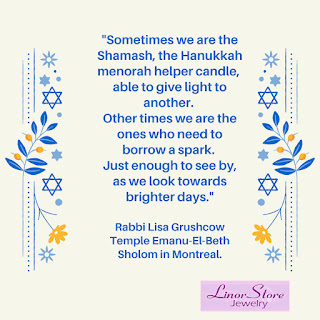Why is Hanukkah the Festival of Lights?
The origins of this term "the Festival of Lights" are quite old, going back to the Jewish historian Josephus Flavius. He lived in Jerusalem in the first century of the Common Era.
"And so Judah and his fellow citizens celebrated the festival of the restoration of the sacrifices of the Temple for eight days ... and they honored God, and delighted themselves with psalms of praise and the playing of harps.
They were so very glad to regain their right to worship, that they made it a law for their posterity that they should keep a festival celebrating the restoration of their Temple worship for eight days. And from that time to this we celebrate this, which we call the Festival of Lights, because, I imagine, beyond our hopes this right was brought to light, and so this name was placed on the festival."
The common story focuses on the miracle of a tiny jar of oil lasting for eight days. It is that miracle that is normally invoked as explanation for the eight days of the festival and the eight candles of the Hanukkah menorah.
But, Josephus makes no mention of the miracle of the oil and speculates that the name comes from the fact that the right to worship and sacrifice again in the ancient temple was “brought to light.”
The most prominent and best-known symbol of the holiday is the menorah — the eight-armed candelabra (nine if you count the shamash). And it is the menorah lights that we typically think of when we call Hanukkah the Festival of Lights. Which is no surprise, given that Hanukkah typically falls around the darkest part of the year.
According to Josephus, it is not the physical lights of the holiday that we are commemorating, but the restoration of the ancient temple practices that, thanks to the courage of the Maccabees, was again “brought to light.”
What's your favorite Hanukkah tradition?
Source: My Jewish Learning








No comments:
Post a Comment